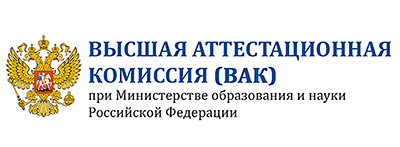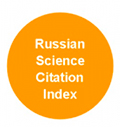How was born the "soviet patriarchy". Grigory Batkis about the sexual revolution in Russia
Abstract
The article analyzes the brochure "The Sexual Revolution in Russia" by Grigory Batkis, one of the founders of Russian social hygiene and sanitary statistics. This brochure, published in 1925 in Germany and never published in Russia, is an authentic document from the period 1917-1923 that is of paramount importance for understanding the Soviet gender project, as well as a new historical source supplementing existing ideas about the origins and circumstances of the emergence of the Soviet statist gender order, or the "Soviet patriarchy".
Batkis’ concept of sexual revolution differs significantly from modern concepts. He defines the sexual revolution as a direct result and continuation of the October Revolution, aimed at destroying the "old Russian family and marital order" as socially unfair and historically doomed.
Batkis unites elements of three social revolutions that modern researchers differentiate: sexual, gender, and family. However, their driving force is not the progress of individualization and the expansion of the space of individual freedom, but the will of power expressed in the “legislation of the Russian communist revolution” (Batkis). In fact, for Batkis the sexual revolution coincides with the adoption of the first Bolshevik laws on family and marriage.
The article examines the similarities and differences in the interpretations of the sexual revolution in Russia by Grigory Batkis and Wilhelm Reich.
The sexual revolution in Russia did not bring about real changes in sexual and gender culture, but it would be wrong to consider it a failed movement; instead, it should be considered a postponed one.
Downloads
References
Aivazova S.G. (1998). Russkie zhenshchiny v labirinte ravnopraviya (Ocherki politicheskoy teorii i istorii) [Russian women in the labyrinth of equality (Essays on political theory and history)]. Moscow: RIK Rusanova. 408 p.
Arendt H. (2011). O revolyutsi [On revolution]. Moscow: Evropa. 437 p. (Arendt H. (1963). New York: Viking. 343p.)
Aristarkhova I. Women and government in bolshevik Russia (1995) // Labour Studies Working Papers. 4. University of Warwick. URL: https://www.academia.edu/4923908/Women_and_Government_in_Bolshevik_Russia (дата обращения: 14.10.2016)
Batkis G. (1925). Die sexualrevolution in Russland. Berlin: Der Syndikalist Fritz Katen. 23 p.
Berdyaev N.A. (1924). Novoe srednevekov'e. Razmyshlenie o sud'be Rossiii [New middle ages. Reflection on the fate of Russia]. Berlin: The obelisk. 142 p.
Connell R.W. (1987). Gender and. Power. Society, the person and sexual politics. Cambridge: Polity Press Ltd. 352 p.
Fitzpatrick S. (1978). Sex and revolution: an examination of literary and statistical data on the mores of Soviet students in the 1920s // Journal of modern history. 50: 252—278.
Foucault M. (1982). Interv'yu: Seks, vlast' i politika identichnosti [An Interview: Sex, power and the politics of identity] URL: http://syg.ma/@nikita-archipov/mishiel-fuko-sieks-vlast-i-politika-idientichnosti (Foucault M. (1982). An Interview: Sex, power and the politics of identity, conducted by Bob Gallagher and Alexander Wilson. URL: https://schwarzemilch.files.wordpress.com/2009/02/foucault-sex-power-and-the-politics-of-identity.pdf (accessed 14.10.2016)).
Giddens A. (1992). The Transformation of intimacy. Sexuality, love, and eroticism in modern societies. Cambridge: Polity Press. 216 p.
Golod S.I. (2005). Chto bylo porokami, stalo nravami: lektsii po sotsiologii seksual'nosti [What was vices, became morals: Lectures on the sociology of sexuality]. Moscow: Ladomir. 230 p.
Golosenko I.A., S.I. Golod (1998). Sotsiologicheskie issledovaniya prostitutsii v Rossii: istoriya i sovremennoe sostoyanie voprosa [Sociological studies of prostitution in Russia: history and the current state of the issue]. Sankt-Peterburg: Petropolis. 126 p.
Karlsen N. (2005). Grigoriy Abramovich Batkis (k 110-letiyu so dnya rozhdeniya) [Grigory Abramovich Batkis (to the 110th anniversary of his birth day)] // Demoscop Weekly [Demoscope Weekly]. URL: http://demoscope.ru/weekly/2005/0225/nauka03.php (accessed : 23.12.2016).
Kon I.S. (1997). Klubnichka na berezke. Seksual'naya kul'tura v Rossii [Strawberry on the birch. Sexual culture in Russia]. Moscow: OGI. 464 p.
Kon I.S. (2010). Tri v odnom: seksual'naya, gendernaya i semeynaya revolyutsii [Three in one: sexual, gender and family revolutions] // Mezhdunarodnaya konferentsiya "Rossiyskiy gendernyy poryadok: iskusstvo, literatura, massovaya kul'tura" (RF, Sankt-Peterburg, Sankt-Peterburgskiy gosudarstvennyy universitet, 19 noyabrya 2010 g.) [International conference "Russian gender order: art, literature, mass culture" (RF, Sankt-Pererburg, St. Petersburg State University, 19 November, 2010)]. URL: http://demoscope.ru/weekly/2010/0447/analit05.php (accessed : 23.12.2016).
Kontseptsiya gosudarstvennoy semeynoy politiki Rossiyskoy Federatsii na period do 2025 goda [The concept of the state family policy of the Russian Federation for the period until 2025]. URL: https://rg.ru/2014/08/29/semya-site-dok.html (accessed 14.10. 2016).
Kukhterin S. (2000). Fathers and patriarchs in communist and post-communist Russia // Gender, state and society in soviet and post-soviet Russia / Ashwin S., ed. London: Routledge: 71-89.
Kurilsky-Ozhven Sh. (1995). Russkaya kul'turnaya model' i evolyutsiya normativnogo regulirovaniya sem'i [Russian cultural model and the evolution of regulatory family regulation] // Obshchestvennye nauki i sovremennost' [Social sciences]. 5: 155 – 168.
Lenin V.I. (1970). O znachenii voinstvuyushchego materializma [On the significance of militant materialism] // Works. 45. Moscow: Izdatel'stvo politicheskoy literatury: 23-33.
Natsional'naya strategiya… [National Strategy…] (2017). Natsional'naya strategiya deĭstviĭ v interesakh zhenshchin na 2017 - 2022 gody [National Strategy of action in the interests of women 2017-2022]. URL: http://government.ru/docs/26698/ (accessed 18.02. 2017).
Pushkareva N.L. (2012). Gendernaya sistema Sovetskoy Rossii i sud'by rossiyanok [The gender system of Soviet Russia and the fate of Russian women] // Novoe literaturnoe obozrenie [New literary observer]. 117. URL: http://www.nlobooks.ru/node/2613 (accessed: 14.10.2016).
Reich V. (1997). Seksual'naya revolyutsiya [The Sexual Revolution]. Moscow: AST. 352 p. (Reich V. (1974). The Sexual Revolution. Toward a self regulating character structure. NY: Farrar, Straus and Giroux. 283 p.).
Sakevich V.I., B.P. Denisov, M. Rivkin-Fish (2016). Neposledovatel'naya politika v oblasti kontrolya rozhdaemosti i dinamika urovnya abortov v Rossii [Inconsistent policies in the field of birth control and the dynamics of abortion in Russia] // Zhurnal issledovaniy sotsial'noy politiki [Journal of social policy studies]. 14. 4: 461–475.
Sorokin P.A. (1922). Vliyanie voyny na sostav naseleniya, ego svoystva i obshchestvennuyu organizatsiyu [The influence of war on the composition of the population, its properties and social organization] // Ekonomist [The economist]. 1: 71 – 88.
Sorokin P.A. (2006). Amerikanskaya seksual'naya revolyutsiya [The American sex revolution]. Moscow : Mezhdunadodny institut P.Sorokina-N.Kondrat’eva. 192 s. (Sorokin P.A. (1956). The American sex revolution. An Extending horizons book. Boston: P. Sargent. 186 p.).
Sotsial'naya gigiena… [Social hygiene…] (1984). Sotsial'naya gigiena i organizatsiya zdravookhraneniya [Social hygiene and the organization of public health service] / A.F. Sergienko, V.V. Ermkov, eds. Moscow: Meditsina. 640 p.
Tartakovskaya I.N. (2012). Stanovlenie sovremennoy rossiyskoy gendernoy sistemy [Formation of the modern Russian gender system]. URL: http://genderpage.ru/?p=744 (accessed 14.10.2016).
The great medical encyclopedia (1988) / B.V. Petrovsky, ed. 3-rd edition. Moscow: Sovetskaya entsiklopediya.
Tolts M.S. (2013). Traditsionalist Stalin, reaktsioner Khrushchev i liberal Brezhnev: otnoshenie k problemam sem'i kak zerkalo istorii SSSR [Traditionalist Stalin, reactionary Khrushchev and liberal Brezhnev: Attitude to family problems as a mirror of Soviet history] // Sovershenno sekretno [Top secret]. 8: 18–19.
Trotsky L. (1991). Predannaya revolyutsiya. Chto takoe SSSR i kuda on idet? [The Revolution betrayed: What is the Soviet Union and where is it going?]. Moscow: NII kul’tury Ministerstva kul’tury RSFSR. 256 p. (Trotsky L. (1937). The Revolution betrayed: What is the Soviet Union and where is it going? New York: Doubleday, Doran and Co. 308 p.).
Vishnevsky A.G. (2010). Serp i rubl': Konservativnaya modernizatsiya v SSSR [Sickle and Ruble: Conservative Modernization in the USSR]. Moscow: Izd. dom Vysshey shkoly ekonomiki. 432 p.
Vishnevsky A.G., V.I. Sakevich, B.P Denisov (2016). Zapret aborta: osvezhite vashu pamyat' [The prohibition of abortion: refresh your memory] // Demoscop Weekly [Demoscope Weekly]. 707-708. URL: http://demoscope.ru/weekly/2016/0707/tema01.php (accessed 23.12.2016).
Zdravomyslova E.A, A.A. Tyomkina (2004). Gosudarstvennoe konstruirovanie gendera v sovetskom obshchestve [State construction of gender in Soviet society] // Zhurnal issledovaniy sotsial'noy politiki [Journal of social policy studies]. 1. 3-4: 299-321.
Zdravomyslova E.A. (2010). Gendernoe grazhdanstvo i abortnaya kul'tura [Gender citizenship and abortion culture] // Demoscop Weekly [Demoscope Weekly]. 409-410. URL: http://demoscope.ru/weekly/2010/0409/analit01.php (accessed 23.12.2016).
Zdravomyslova O.M. (2012). Rossiyskie zhenshchiny i emansipatsiya: nezavershennyy proekt [Russian women and emancipation: incomplete project] // Neprikosnovennyy zapas. Debaty o politike i kul'ture [Neprikosnovennyi zapas. Debate about politics and culture]. 83 (3/2012): 42-51.






















